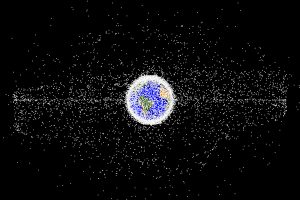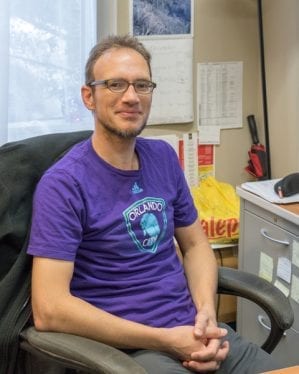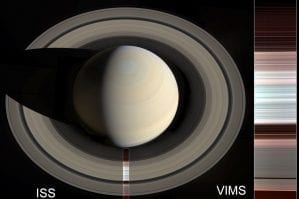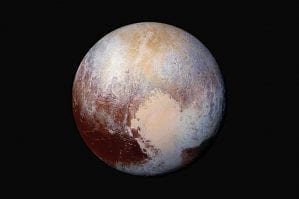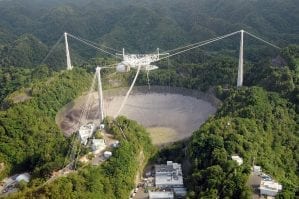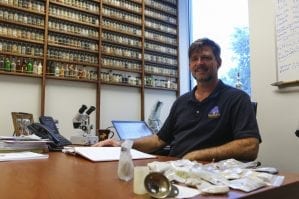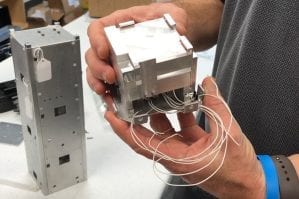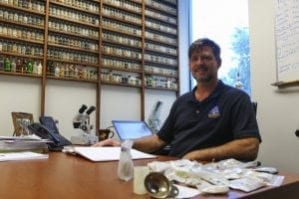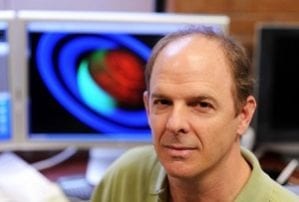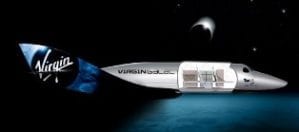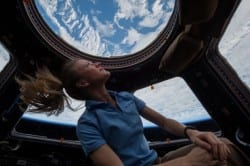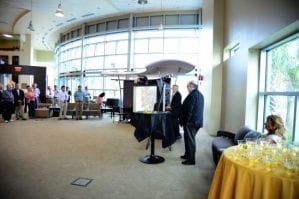-
New NASA-funded Study Hopes to Put Risks of Space Junk on People’s Radar
Space may seem infinite but the real estate in Earth’s orbit is filling up fast with junk. The debris orbiting the Earth consists of human-made objects that no longer serve a purpose and range from fragments of metal to nonfunctioning spacecraft and abandoned rocket stages. This space junk can endanger spacecraft and damage satellites that […]
-
3 UCF Researchers Part of Nature Astronomy Articles Chronicling Spitzer Space Telescope Legacy
To understand the significance of the Spitzer Space Telescope on the understanding of our solar system, think of what the steam engine meant for the industrial revolution. A national team of scientists today published in the journal Nature Astronomy two papers that provide an inventory of the major discoveries made possible thanks to Spitzer and […]
-
Mission Reveals New Details About Saturn’s Rings
BY ROBERT WELLS | JUNE 17, 2019 Researchers are offering glimpses into the nature and composition of Saturn’s legendary rings by using data from some of the closest observations ever made of the main rings. Even though NASA’s Cassini spacecraft’s mission to Saturn ended in 2017, scientists are still poring over the copious amounts of data it […]
-
Pluto a Planet? New Research from UCF Suggests Yes
By Robert H. Wells The reason Pluto lost its planet status is not valid, according to new research from the University of Central Florida. In 2006, the International Astronomical Union, a global group of astronomy experts, established a definition of a planet that required it to “clear” its orbit, or in other words, be the […]
-
UCF on Track to Become National Leader in Space Research
When the University of Central Florida took the helm of the Arecibo Observatory in Puerto Rico on April 1, the university entered a new era. “We are forging new ground for UCF,” said Elizabeth Klonoff, vice president for research and dean of the College of Graduate Studies. “We already have outstanding research in planetary sciences, […]
-
Mining for Moon Water
by Zenaida Kotala UCF’s Phil Metzger and Julie Brisset from the Florida Space Institute recently landed a contract to develop a model to mine the moon for water. Data suggests the moon has water locked away in its icy soil, especially at the moon’s poles. The challenge is finding an effective and inexpensive way to […]
-
Team Building Mini Satellite to Fly in Space in 2018
by Zenaida Gonzalez Kotala A team of UCF researchers and their students is building a small satellite that will conduct experiments as it orbits the Earth next year. The NASA-funded project code-named Q-PACE will help Physics Professor Joshua Colwell and his team better understand how planets form. The experiments involve marble-sized particles and what happens […]
-
New Ways to Colonize Mars
Two researchers at the University of Central Florida were featured in an article published by The Atlantic titled ‘The Low-Tech Way to Colonize Mars.” The article focuses on the research conducted by Philip Metzger, Ph.D., an associate in planetary science research at the Florida Space Institute, and his team. Daniel Britt, Ph.D., professor in the Department of […]
-
Space Launch Carries Experiments of UCF Professor, Graduate
Two payloads on last Saturday morning’s SpaceX-4 launch at Cape Kennedy had UCF ties. The launch will deliver cargo and crew supplies to the International Space Station. Several experiments on the flight will include: Physics professor Joshua Colwell’s research to explore low-energy collisions of dust particles to better understand the conditions that lead to the formation of […]
-
UCF Pushes Space Frontier, Selected to Fly on Virgin Galactic’s SpaceShipTwo
A UCF experiment and a 3-D printer for space developed by a UCF graduate will fly on the first NASA-funded commercial research flight on Virgin Galactic’s SpaceShipTwo. NASA and Virgin Galactic announced Tuesday that 12 university experiments, two industry-developed technologies and two NASA projects were selected for the mission. Dr. Joshua Colwell, a UCF physics […]
-
Avoiding Deep Impact: UCF, NASA Study Spaceship Teamwork
Visiting Mars in 2030 is going to take some engineering ingenuity, but making sure astronauts make the long, cramped journey without driving each other crazy is going to be just as tricky. It’s estimated that a round trip to Mars will take at least two years. That’s why NASA is investing millions of dollars trying […]
-
Who Wants to be a Millionaire?
Twenty one researchers in areas ranging from optics, medicine, psychology and education were recognized last week in what has become a much-anticipated campus tradition – induction into the UCF Millionaires Club. The club, which was established in 2000, recognizes researchers who have received external sponsored funding of $1 million or more in the last fiscal […]

